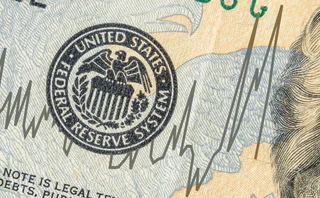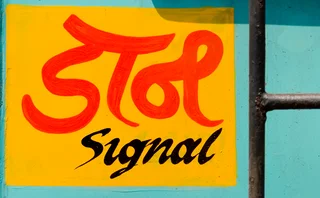
No dealer hedging panic from Hong Kong market plunge
China fears, not Grexit, see Hong Kong market rattled more than peer indexes

Forced sellers funding margin calls in China caused a 1,000 point market plunge in Hong Kong that triggered a 30% intraday spike in volatility but dealers say there was "no panic" in hedging their derivatives books.
Hong Kong stocks had a turbulent day on July 6 with the benchmark Hang Seng Index plunging by 1,200 points, or 4.5%, only to recover to close about 900 points down. The Hang Seng China Enterprises Index (HSCEI) was down by 3%.
The moves were widely attributed to news of Greece voting No in a referendum for further austerity, making its place in the eurozone more uncertain. With large quantities of international money invested in Hong Kong this scenario was seen as risk-off.
However, the exaggerated sell-off in Hong Kong versus peer indexes in Korea and Japan that are usually aligned has been described as "puzzling" and "unusual" by dealers and has been ascribed to China-based sellers of stock in Hong Kong seeking to fund margin calls in the wild onshore equity markets.
This is despite efforts by the China Securities Regulatory Commission over the past week to relax rules requiring investors to make additional guarantees if their margin ratio reaches 130% at the risk of their shares being liquidated. Brokerages have also been permitted to roll over margin trading contracts with clients.
China's equity markets have risen more than 50% since January, only to fall 25% over the past three weeks, with a knock-on effect on the Hong Kong market.
"The market perception was that investors in China were selling H-shares to fund China A-share margin calls so essentially using H-shares as their ATM," says a trader at an international bank in Hong Kong.
 Hong Kong's volatility index, the VHSI, spiked more than 30% from 22.4 to 29 volatility points before stabilising at 23.6 points (see chart).
Hong Kong's volatility index, the VHSI, spiked more than 30% from 22.4 to 29 volatility points before stabilising at 23.6 points (see chart).
"HSCEI volatility was already elevated on July 3 partly due to Grexit concerns and was bid up further yesterday but as Europe opened volatility came off," says Shane Carroll, equity derivatives strategist at Societe Generale in Hong Kong.
Carroll says there was also some impact to dealers hedging their sensitivity to volatility, or vega, in their derivatives books.
"The longer-dated impact of structured product flows means that when the market sells off and spot goes down, exotic desks become longer vega because of their autocallable exposure so they need to sell more volatility.
"With a strong market move lower like this the duration of those products is extended so dealers were selling on Dec 16 but Dec 15 vol was flat while shorter-dated volatility spiked higher."
Valery Bloud, head of flow and hedge funds sales, Asia-Pacific at BNP Paribas, agrees that there was a big spike in short-dated volatility with the front end of the curve up by two to three volatility points.
"Gamma [the rate of change in delta] was well bid but vega at 18 months to the two year point was unchanged or slightly down because of exotic books' big vega inventories.
"There is a downward sloping term structure on HSCEI where the front end of the curve is higher due to the high realised volatility while the back end benefits from supply of structured products, " he says, adding that there was no real panic in the sell-off.
"Short-dated volatility reacted as we expected for this kind of market move. While it's normal to see the front end of the curve spiking when the market goes down 4% it was surprising that the back end hardly spiked at all but this dynamic isn't related to nervousness of the market but deformation of the exotic book and dealers' inventory of vega."
An equity derivatives dealer at a large bank in Asia says that as volatility didn't move that much it suggests there wasn't much pain on the Street.
"If dealers were panicking to cover short gamma then usually there would be a big spike in volatility but it was rather orderly. Despite the magnitude of the spot move lower, volatility was relatively unchanged for the day," he says.
Only users who have a paid subscription or are part of a corporate subscription are able to print or copy content.
To access these options, along with all other subscription benefits, please contact info@risk.net or view our subscription options here: http://subscriptions.risk.net/subscribe
You are currently unable to print this content. Please contact info@risk.net to find out more.
You are currently unable to copy this content. Please contact info@risk.net to find out more.
Copyright Infopro Digital Limited. All rights reserved.
As outlined in our terms and conditions, https://www.infopro-digital.com/terms-and-conditions/subscriptions/ (point 2.4), printing is limited to a single copy.
If you would like to purchase additional rights please email info@risk.net
Copyright Infopro Digital Limited. All rights reserved.
You may share this content using our article tools. As outlined in our terms and conditions, https://www.infopro-digital.com/terms-and-conditions/subscriptions/ (clause 2.4), an Authorised User may only make one copy of the materials for their own personal use. You must also comply with the restrictions in clause 2.5.
If you would like to purchase additional rights please email info@risk.net
More on Markets
Basis swaps surge amid US repo concerns
Fed funds-versus-SOFR swap volumes nearly quadruple as declining Fed reserves impact funding rates
India delays initial margin go-live date
RBI communicated putting off initial margin rules one day before planned November 8 implementation
Clearing bottlenecks blamed for muted volumes at FMX
Regulatory hurdles and market conditions have also hampered CME rival since its September launch
JPM sees upside in blurring lines between QIS and SMAs
Hedge funds are combining their strategies with bank indexes to create new products
Hedge funds take profit on vol trades with Trump win
FX volatility drops sharply as positions unwind; rates market sees mixed reaction
Shanghai Clearing House urged to take bond collateral for FX trades
Dealers complain that feeble interest rate paid on cash margin raises cost of clearing
BofA’s e-FX rebuild pulls it closer to rivals
Deploying its equities tech stack, bank seeks to get ahead of the pack with algo and e-FX offerings
Corporates look to tackle unhedgeable inflation indexes
As inflation risks mount for corporates, some are finding their exposures are linked to niche indexes







